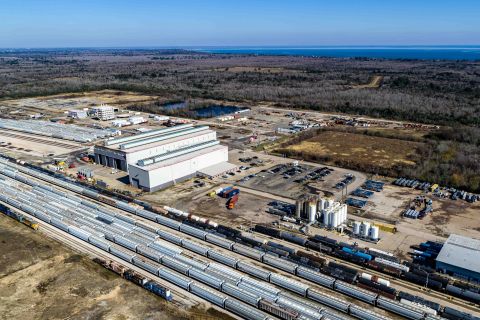U.S. oil and gas production is currently 7 MMbbl/d below peak, and significant investments in production will be needed to maintain consumption, according to Paul Goydan, the Houston-based head of North American energy practice with Boston Consulting Group (BCG).
“In our long-term models, even with peak demand coming sooner, we estimate that by 2030 the world will need to replace almost half of the pre-pandemic oil production. What that means is that under any climate change scenario, the world will need to invest well over a trillion dollars in the coming decade, as we transition away from fossil fuels,” Goydan, who serves as a managing director and senior partner at BCG, told Hart Energy’s Faiza Rizvi.
Goydan also discussed BCG’s annual value creation report, which the firm released recently. The report shows that with less capital available to spend, decisions on how to allocate it have become starker. Consequently, a clear split has emerged in companies’ strategies for the future, with significant implications for value creation.
“While European players are focusing on broad-based energy companies and shifting portfolio investments toward low- and zero-carbon technologies, North American IOCs are keen on hydrocarbons in the medium term and are focusing on increasing efficiencies in returns,” he said.
However, regardless of the approach, both groups continue struggling with persistently low total shareholder returns and have yet to prove to investors that they can create sustained value.
“80% of investors think that companies should set and meet carbon reduction and climate change related goals,” Goydan said. “They also agree that oil and gas companies should actively invest in low and zero-carbon energy technologies. That percentage, however, dropped to 60% investors supporting portfolio moves and shifts if it dramatically impacts earnings.”
He continued, “The sector continues to be caught in a changing business but also with a strong, strong focus on fundamentals related to earnings, cash and balance sheet as they navigate energy transition.”
Commenting on President Biden’s decision of rejoining the Paris Climate Agreement, Goydan also added it highlights a recommitment of the country to international dialogue and engagement on climate change to create international policy.
“What that means in practice is we now have to discuss as a country and put in place a plan and policies to address climate change,” he said. “The real impact to the oil and gas industry is what actions we create in that plan and with a largely equally-split Congress, most of the actions will stem from what can the executive branch do on current and existing regulations such as the Clean Air Act and when can we get consensus from the Congress to progress our climate change goals.”
Jump to a topic:
- Paris Climate Agreement (0:33)
- Oil and gas investments (2:34)
- Market recovery strategies (4:44)
- BCG’s annual value creation report (7:01)
- President Biden’s executive order (9:38)
Recommended Reading
Plug Power Finalizes Contract with US Auto Manufacturer
2024-02-21 - Plug Power says it will supply hydrogen infrastructure and fuel cell solutions as part of the agreement.
Energy Transition in Motion (Week of Feb. 2, 2024)
2024-02-02 - Here is a look at some of this week’s renewable energy news, including a utility’s plans to add 3.6 gigawatts of new solar and wind facilities by 2030.
John Cockerill Americas President Talks Hydrogen, Electrolyzers
2024-03-06 - Nicolas de Coignac, president of Americas for John Cockerill, recently spoke with Hart Energy about the company’s role in scaling electrolytic hydrogen in the U.S.
Shell Taps Bloom Energy’s SOEC Technology for Clean Hydrogen Projects
2024-03-07 - Shell and Bloom Energy’s partnership will investigate decarbonization solutions with the goal of developing large-scale, solid oxide electrolyzer systems for use at Shell’s assets.
Verdagy Awarded $39.6MM DOE Grant for Electrolyzer Production
2024-03-14 - Verdagy will use the Department of Energy grant to accelerate the manufacture of e-dynamic electrolyzers for green hydrogen solutions.




